Deadly Bombs Hit Gaza As US Security Envoy Visits Israel
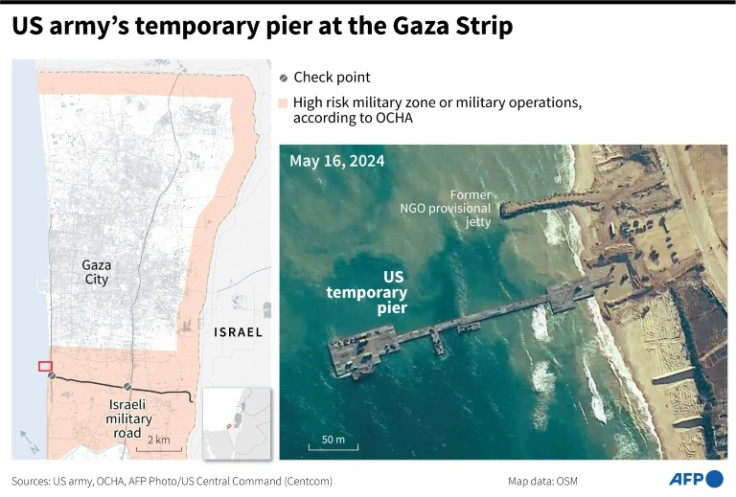
An Israeli strike in Gaza killed 31 people Sunday, the Palestinian civil defence agency said, as US National Security Advisor Jake Sullivan was visiting for talks on the brutal conflict and post-war scenarios.
Army troops have moved in on Gaza's crowded far-southern city of Rafah, which they describe as the last Hamas stronghold and where the UN says 800,000 civilians have been newly displaced by the fighting.
But Israel has also fought and bombed resurgent Hamas forces in northern and central areas of Gaza previously considered to be under army control, sparking US warnings that the military could become mired in a lengthy counterinsurgency campaign.
In the latest aerial bombardment overnight, Gaza's civil defence agency said that a strike had killed 31 people and wounded 20 more in a family house in the central Nuseirat refugee camp.
The wounded included several children and rescuers were searching the rubble for missing people, said the Palestinian official news agency Wafa, while the Israeli army said it was checking the reports.
On Saturday, Palestinian relatives wailed with grief as victims including an infant were rushed to Kamal Adwan hospital in northern Beit Lahia, following Israeli strikes and heavy clashes in Jabalia.
Abu Nabil, a Jabalia resident, said "tanks and bulldozers approached our homes, forcing us to leave, after they struck a neighbouring house, injuring us.
"I call upon all free people in the world, to anyone with a shred of humanity... there are massacres happening here. Children are being torn to pieces. What's the fault of these children and women?"
Israel's Prime Minister Benjamin Netanyahu has vowed to keep fighting Hamas in Gaza, following its October 7 attack on Israel, until the Islamist group is defeated and all remaining hostages are brought home.
But he has faced intense opposition and calls to announce a plan for Gaza's post-war governance -- from top ally Washington and from mass street protests, and now also from two members of his war cabinet.
One of the ministers, Benny Gantz, threatened on Saturday to quit the governing coalition unless Netanyahu approves a post-war "action plan" by June 8.
Gantz said this must include steps to defeat Hamas, to bring home the hostages, and towards the formation of an "American, European, Arab and Palestinian administration that will manage civilian affairs in the Gaza Strip".
Netanyahu dismissed Gantz's comments as "washed-up words" and said they would lead to "a defeat for Israel, the abandoning of most of the hostages, leaving Hamas intact and the establishment of a Palestinian state", which the premier fiercely opposes.
Amid the political turmoil, Sullivan was to hold talks Sunday with his Israeli counterpart Tzachi Hanegbi and with Netanyahu on the Gaza war, after earlier meeting Saudi de facto ruler Prince Mohammed bin Salman in the kingdom.
Washington has pushed for a post-war plan for Gaza involving Palestinians and supported by regional powers, as well as for a broader diplomatic deal under which Israel and regional powerhouse Saudi Arabia would normalise relations.
Riyadh has demanded deeper security ties with the United States and that Israel agree to steps on ending the decades-old conflict and towards the creation of a Palestinian state.
Saudi state media said Prince Mohammed and Sullivan discussed "the semi-final version of the draft strategic agreements between the Kingdom and the United States of America, the work on which is close to being completed".
They had also discussed "the situation in Gaza and the necessity of stopping the war there and facilitating the entry of humanitarian aid" as well as "the Palestinian issue" and ways "to find a credible path towards a two-state solution".
The Gaza war broke out after Hamas's unprecedented October 7 attack on Israel, which resulted in the deaths of more than 1,170 people, mostly civilians, according to an AFP tally based on Israeli official figures.
Hamas also took about 250 hostages during the October 7 attack, of whom 124 remain held in Gaza including 37 the army says are dead.
Israel's retaliatory offensive against Hamas has killed at least 35,386 people in Gaza, mostly civilians, according to latest data provided on Saturday by the Hamas-run territory's health ministry.
The Israeli military said two more soldiers were killed in Gaza on Saturday, raising its death toll to 282 soldiers in the campaign since the start of the ground offensive.
Amid the war, Israel has also imposed a siege on the Gaza Strip's 2.4 million people that has deprived them of normal access to clean water, food, medicines and fuel, the suffering eased only by sporadic aid shipments by land, air and sea.
However, truck arrivals have slowed with the Rafah crossing with Egypt, a vital conduit for humanitarian aid, closed since Israel launched its operation in the city.
In recent days aid began entering Gaza via a temporary US-built floating pier, where shipments sent from the island of Cyprus are offloaded for distribution.
In a sign of Gaza's dire shortages, crowds of desperate Palestinians were seen quickly swarming some of the trucks and hurling the cargo to people by the roadside.
UN agencies and humanitarian aid groups have stressed that sea deliveries and airdrops cannot replace the far more efficient truck convoys into Gaza, where the UN has repeatedly warned of looming famine.
The World Health Organization warned Friday that it has received no medical supplies for Gaza since the Rafah operation began early this month.
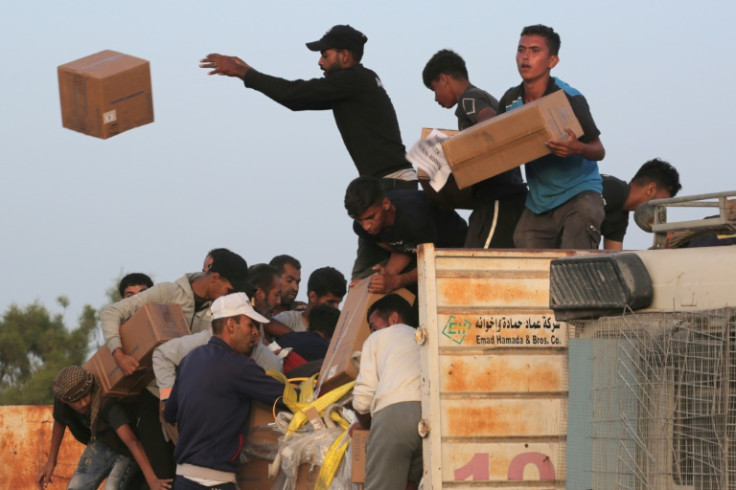


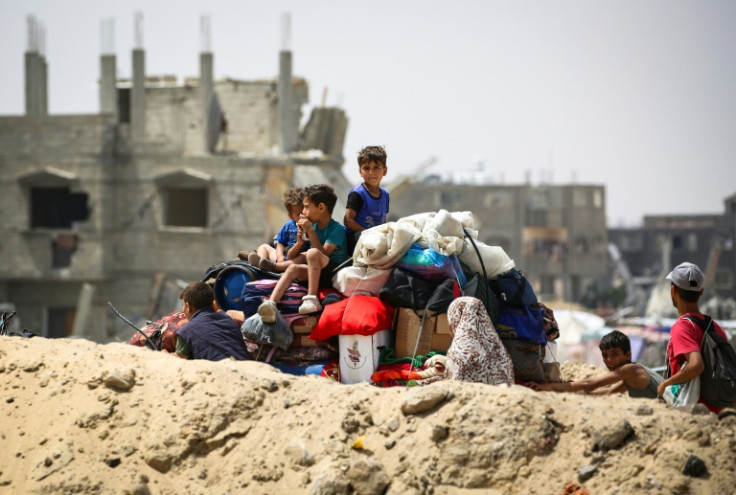
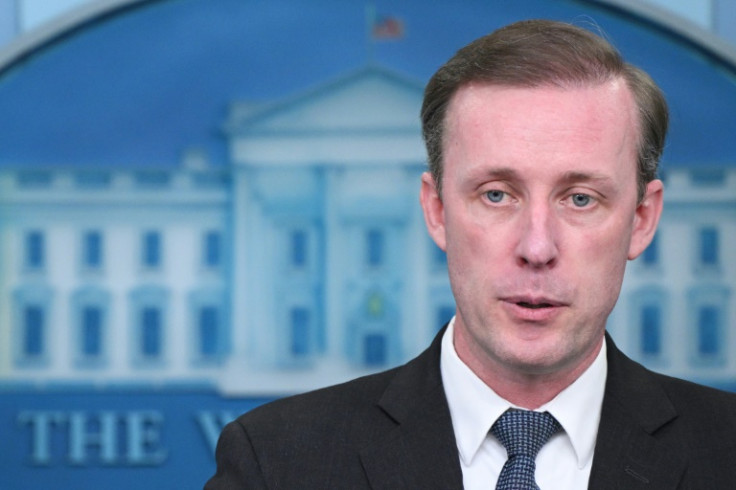
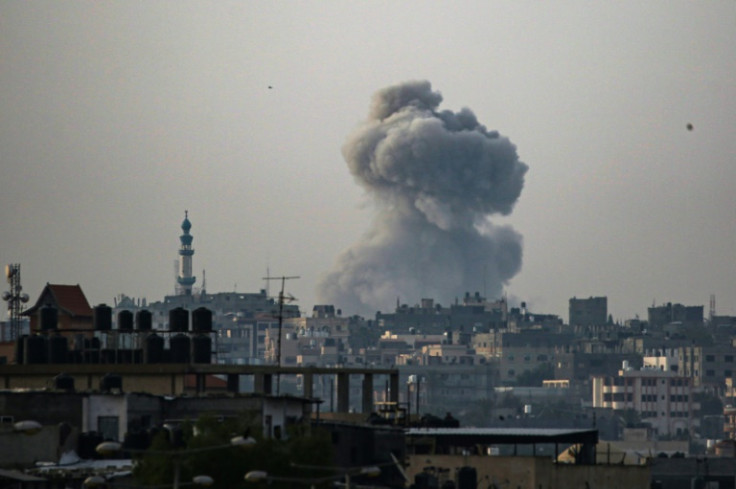
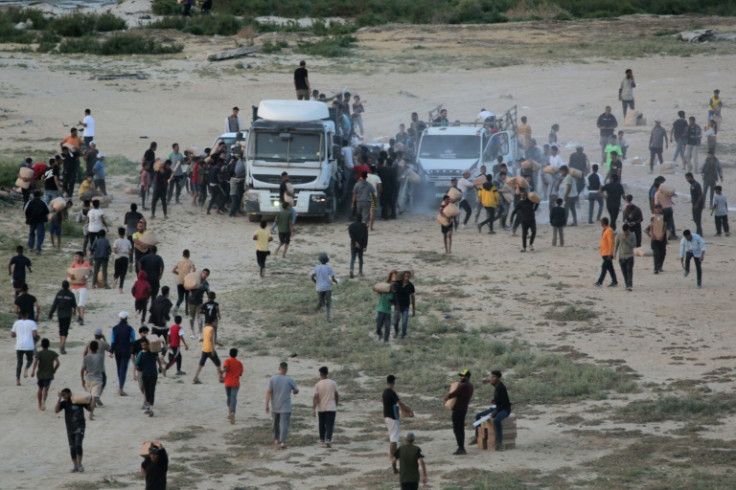
© Copyright AFP 2025. All rights reserved.





















